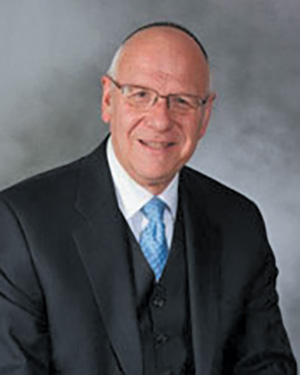
Parshat Toldot
“Machar Chodesh”
Few haftarot have a more obvious reason for their selection than today’s reading. The opening words express the very nature of this day: “Machar Chodesh”—“tomorrow is a new month.” And yet, it is difficult to assume that a mere two words would serve as Chazal’s reason for choosing this selection from Shmuel A.
HaRav Yissachar Ya’akovson, in his classic work “Chazon HaMikra,” points to a number of other connections between this haftarah and Rosh Chodesh. Among them he includes the fact that the beginning of a month is declared upon witnessing the renewal of the moon. The concept of renewal, of a fresh beginning, of another start is a most basic teaching regarding Rosh Chodesh. Similarly, one can see, in the emerging “power struggle” between King Sha’ul and the future King David, a struggle that is reflected in the events depicted in this haftarah, as the dawning of a new beginning and fresh start for the kingdom of Israel. In fact, as Rav Ya’akovson suggests, the Midrash that declares that the moon’s brightness was reduced when it complained that “two kings cannot share the same crown” can be understood as a description of the Sha’ul vs. David struggle, with two kings vying for one crown.
It would be a mistake, however, to see this as a personal battle between these two righteous men. Sha’ul, as depicted in the Tanach, had lost God’s “spirit” and struggled with bouts of depression, often not in control of his own actions. During moments of clarity, he even admitted that he behaved poorly and that David would succeed him upon the throne. David, meanwhile, never actively sought the kingship, despite the fact that he had been promised the throne and had even been anointed by the navi Shmuel. In fact, a close study of David’s behavior throughout these years would indicate that he eschewed violence as a way of rising to power and even punished those who used force to try and place him on the throne. David would accept the crown only if that reflected the will of the people as well as the will of God. And with that, he left us a lesson for today.
David Hamelech understood that there could not be a renewal, a rebirth, without a reunification. A new era could not be forced upon a reluctant people. Change would be successful only if the nation united behind the change and supported it. We must therefore realize that “Machar Chodesh,” tomorrow could be the age of renewal, the messianic era. It could be the time when the Mashiach, the scion of David, arrives. But he will not take his rightful place on the throne until we, as a united people, support it, desire it and work together peacefully to make it happen.
By Rabbi Neil N. Winkler
Rabbi Neil Winkler is the rabbi emeritus of the Young Israel of Fort Lee and now lives in Israel.













